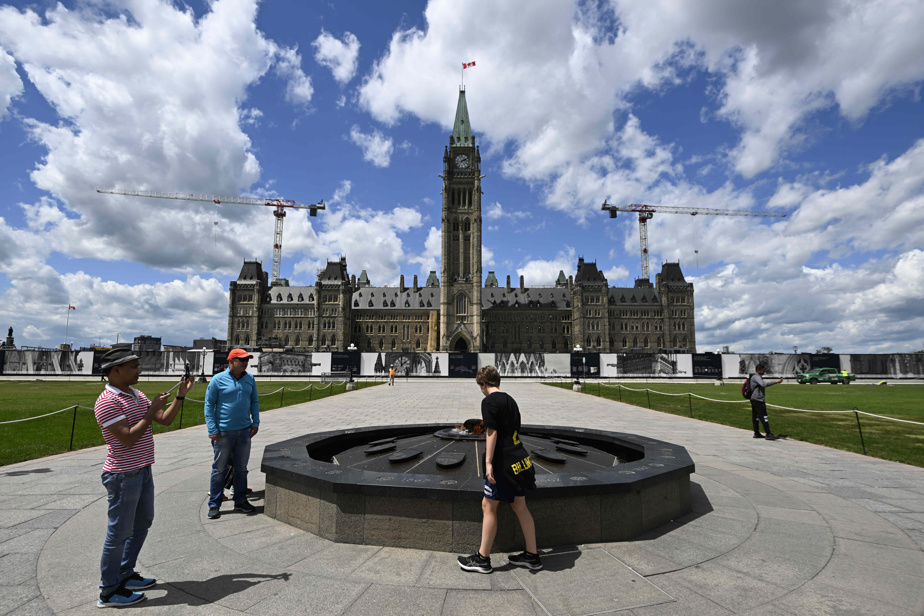On the occasion of Canada Day, it is not superfluous to ask ourselves somewhat about the deep and true meaning of federalism and, above all, that we distinguish it from unitary.
Benoit Pelletier Doctor of Laws, Distinguished Lawyer, Distinguished Professor (University of Ottawa School of Law) and Former Politician
Thus, a unitary state is characterized by the fact that state sovereignty is exercised by a single system of government, and more specifically, by a single parliament. This does not prevent that there should be decentralization, but this permission is only administrative and not legislative. It is based primarily on delegated powers and not on sovereign powers as such.
In federalism, legislative powers and state sovereignty are shared between at least two systems of government. Everyone has sovereignty in the exercise of his constitutional powers.
There are also so-called semi-federal or regional states. In these states, there is a kind of decentralization of legislative powers, but this does not have as strong constitutional protection as in a true union. Perhaps this is the case for Catalonia or Scotland, these two political entities enjoy widespread, but nonetheless relatively unstable, devolution of powers within their respective states.
In the world there are also a number of countries that we will call hybrids. These are countries of an ambiguous nature and do not clearly fall into any category. Most of the time, states are unitary with many federal characteristics without being “quasi-federal,” as this latter concept was described earlier.
A confederation, in its classical concept, constitutes a federation of states rather than a state per se. These states delegate powers to joint bodies. Each country has a veto over the most important decisions and can withdraw from the confederation as it sees fit. The Confederate association in question is itself sealed by one or more international agreements. The European Union, with its basic confederal structure, but also its many federal features, constitutes a model Farida some might say, a redesign or a new type of confederation.
Canada is clearly a federation. Although not perfect. But there was no confederation. Neither before nor after 1867.
Many Canadians have a more unitary than federal vision and understanding of the country. They promote the centralization of powers in the hands of the federal authorities and see Canada as a mononational or non-national entity. For them, there is only one nation in Canada: the Canadian nation.
However, Canada is actually made up of many countries. There is the Quebec nation, the indigenous peoples, the Acadian people, etc. In fact, Canada is multinational and the historic choice of federalism for this country was specifically intended to allow this intrinsic diversity to flourish, within territorial autonomy. In this context, the centralization of powers within the Canadian system should not be sought as far as the balance of power is concerned, as well as respect for the provinces and their authority in certain matters determined by the Constitution. We must also appreciate the recognition and respect of indigenous rights.
Unequal Federalism
The ideology is widespread in Canada that Canada should consist of a very strong central government, 10 theoretically equal provinces and individuals with constitutional rights and freedoms. It is largely inspired by the works of Pierre Elliot Trudeau. But wouldn’t it be in our interest, as a society, to choose an unequal federation, that is, in particular, a federation that promotes the assertion and recognition of Quebec’s special identity?
Unequal federation is nothing but a flexible federation capable of adapting to the needs and interests of the various components of the federal state. This type of federalism, the virtues of which have been recognized in Ottawa, by both Paul Martin’s government in 2004 (a convention on health entitled “Unequal Federalism Respecting Quebec’s Jurisdictions”) and by Stephen Harper (the Canada-Quebec Agreement dated UNESCO), In our opinion, the way of the future for Canada. This would allow Quebec to strengthen its own identity, while giving other provinces the opportunity to make choices different from those of Quebec society, or even accept, if they wish, federal interventions in areas of regional jurisdiction.
However, this unequal federalism that we are talking about cannot be comprehensive or unlimited. Indeed, it seems necessary to us that all Canadians share a certain number of values, resources, and ideals, in short, share a purely Canadian community experience.
Whatever the case, Canadian federalism is already unequal in many respects, particularly in terms of language. Thus, asymmetry is not inconsistent with respect for the federal principle, so far as it is clear and likely.
Between the unitary state many see in Canada as a whole and true federalism, we choose the second firmly. But this federation, to be precisely right, must celebrate its intrinsic diversity, including the particularity of Quebec. The best way to achieve this is to fully respect the jurisdiction of the provinces, to strengthen their voice in the Canadian space and to reject this unity that does not fit a federal country like Canada.





